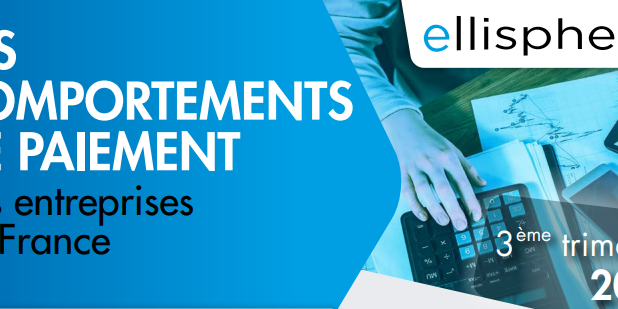Data, an undeniable value for the company
In the age of Big Data, data is seen as the main fuel for driving strategies and operations. In the context of credit risk management in a BtoB relationship, guaranteeing quality, fresh and exploitable data is essential to all good decisions.
Erroneous, obsolete, incomplete, duplicated, not linked to the company and not centralized, the risks linked to data quality are numerous. This can lead to biased decisions, resulting in errors in outstandings and the prediction of non-payments, sometimes resulting in financial losses.
An essential component, data is the result of the collection and aggregation process (automatic or manual) of heterogeneous information sources. Unified and updated, they bring a capital value. Obsolete or of poor quality, it has only a relative value, and can be a real handicap by distorting the appreciation of the reality of a business relationship.
Heterogeneity and complexity of data
In customer risk analysis, company data comes from multiple external and internal sources. Very often, this data is raw and comes from multiple databases, files, APIs or manual collection. It can be legal or private, of various qualities and formats.
Aggregated and unified around an identifier, these data, which must be qualified, are the pillars of the value of decisional information at the service of company professionals (credit managers, purchasing managers, etc.). At this level of requirement, the necessary processes of control and coherence of information remain a real challenge within companies, because they are really time-consuming and require a lot of human resources.
For example, legal announcements. Their function is to make public very precise information on the creation, modification or dissolution of a company. However, the inaccuracy, amputation, obsolescence or temporality of certain information can distort the reality in the analysis of a file. Therefore, in order to use the data held on its business partners accurately and fairly, checks must be carried out by experts who have a perfect command of the content and sources of information:
- The legal life of companies,
- Mastery of the formalities and obligations of legal publication or filing of documents according to the legal form and the different media(SHAL, Bodacc, Balo, Joafe...).
In the legal advertisements, you will find information about:
- The modification of the statutes, the name of the structure, the legal status, the place of residence of the company...
- Changes in the corporate purpose, the share capital, or a change in management,
- Filing of annual financial statements with the clerk of the Commercial Courts and publication in the Bodacc. Certain companies are required to publish their annual financial statements and, where applicable, their consolidated financial statements in a medium authorized to publish legal notices or in the Bulletin des annonces légales obligatoires (Balo).
- ...
Guaranteeing quality data is a job
As you can see, collecting and aggregating company data is not enough to get value from it. It is also necessary to have a broad culture of legal life, as well as of financial analysis of a company to get value from it. This expertise allows to give meaning to the temporality of events in the credit decision making.
In this logic, it is therefore important to know how to surround yourself with a business information partner who must be able to aggregate and unify data on companies with a true qualitative approach.
For credit management, data quality is essential for informed decision-making. This is a real expectation of credit managers when we know that in theage of open data, 10 to 15% of legal data on companies are subject to anomalies or errors.
In a context where reliable data is a real advantage for predictive analysis and the subsequent credit decision, it is important for credit managers to choose a business information provider with the highest quality approach. Indeed, this is a powerful lever to optimize credit risk management.
To meet this major challenge, Ellisphere has set up a team dedicated to data production and quality. For example, this team performs algebraic and consistency checks on the annual accounts published on its Ellipro information platform, with manual rework when errors are detected.
As you can see, without reliable data, solid and efficient decision making is not possible.
Data production and exploitation: an extremely wide range of expertise required
With more and more Open Data sources of business information available and the volumes of data potentially accessible increasing, data quality must be better than ever.
Regardless of its size, function or sector, every organization must pay attention to the quality of its internal and external data. Failure to do so can be very costly.
In credit management, good use of company data is often closely linked to the choice of a company information provider. In order to refine and guarantee the relevance of credit decisions in a constantly changing economic and legal context, the latter must :
- To be a real expert in the processing of business information data, mastering the intricacies of legal advertising with a real quality approach to the data disseminated and monitored,
- Have implemented a proven methodology for aggregating data from heterogeneous sources,
- Mastering financial analysis and early detection of default, including the development of decision support tools such as scoring.
In conclusion, having and using reliable data supports good credit decision making, but requires the support of BtoB information experts.
*SHAL: medium authorized to receive legal announcements, Bodacc: Bulletin des annonces légales obligatoires, BALO: Bulletin des annonces légales obligatoires, JOAFE: Journal officiel des associations et fondations d'entreprise



